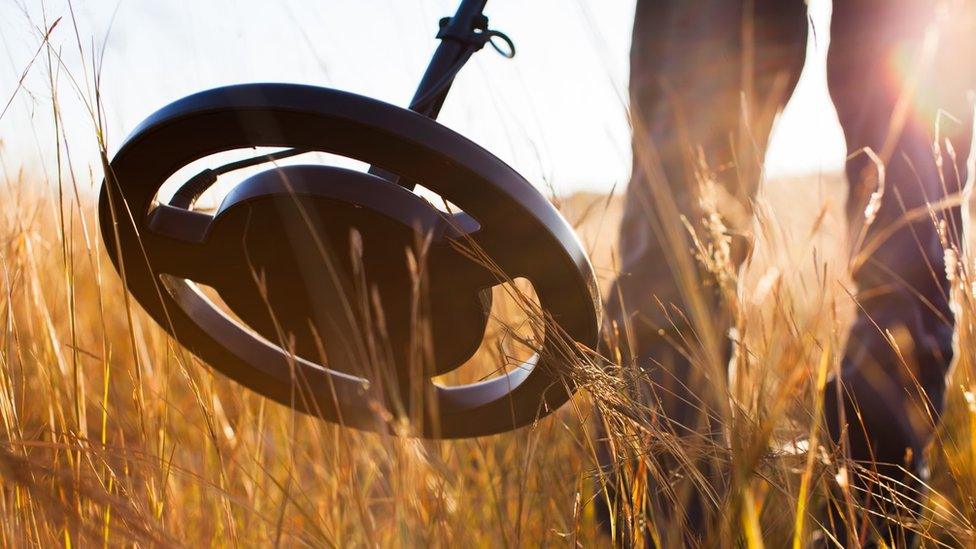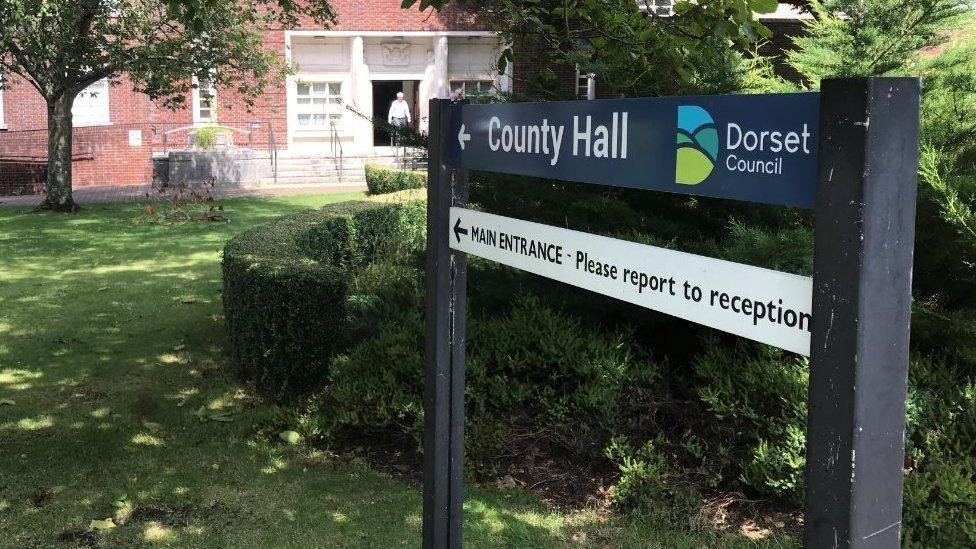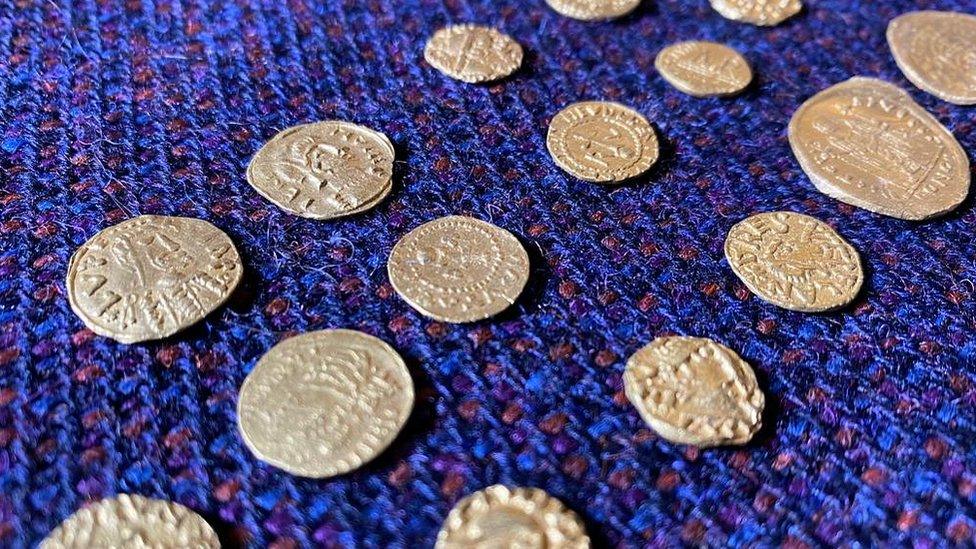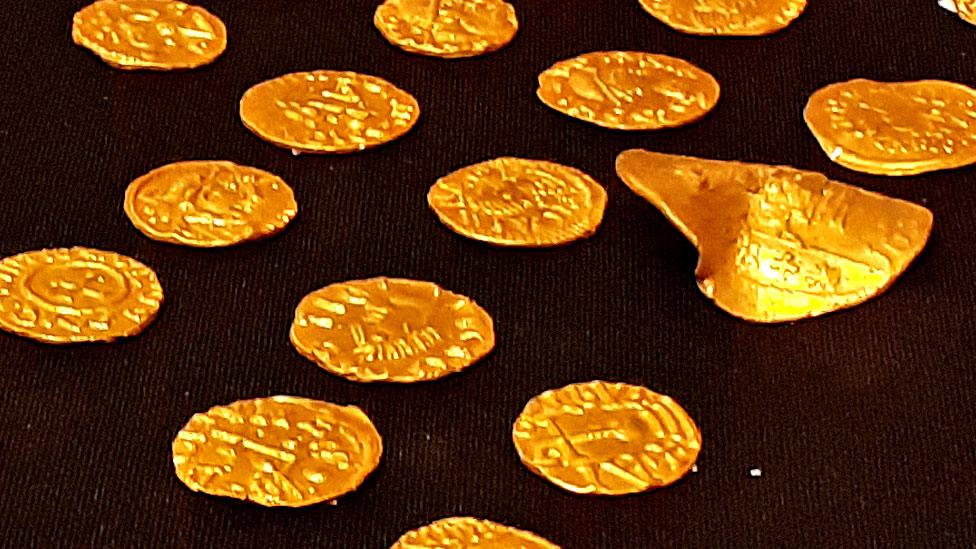Dorset treasure hunters face stricter council criteria
- Published

Dorset Council has seen an increase in requests to use its land by metal detectorists
Amateur archaeologists and metal detectorists face stricter criteria to access a council's land.
A report, external produced for Dorset Council said there has been a "Covid-19 related boom" in the hobbies, resulting in increased demand for its staff's time.
It suggested access to the authority's land should only be granted for "an approved programme of archaeological investigation or research".
The policy also states that any finds remain the property of Dorset Council.
The council's previous policy on metal detectorists has been in place since the mid-1990s, according to the Local Democracy Reporting Service.

A final decision on the policy will be made later in the year by the authority's cabinet
The report, written by council officers, said this related mainly to farmland owned by the authority and took little account of other sites it manages.
"Many more novices are taking up these activities, often without proper preparation, leading to increased calls on Dorset Council staff time," the report added.
"Requests for access to land are more frequent and are coming into a range of teams leading to uncertainty over what activities are permitted.
"Tenants, site managers and front-line colleagues need to know how to handle these requests."
Under the policy, requests for written permission would have to be made through the Historic Environment Record Service based at the Dorset History Centre in Dorchester and then signed off by the senior archaeologist.
The terms will be laid out in a document, clearly stating that any finds remain the property of Dorset Council.
A final decision on the proposed policy changes will be made at a cabinet meeting later in the year.

Follow BBC South on Facebook, external, Twitter, external, or Instagram, external. Send your story ideas to south.newsonline@bbc.co.uk, external.
Related topics
- Published21 May 2022

- Published29 November 2021

- Published24 November 2021

- Published3 November 2021
